Topics: Recruitment
New Year Resolutions to Achieve Recruitment Success in 2020
Posted on January 09, 2020
Written By Aron Vaidya

What is the one thing that we do every New Year? We set new resolutions to improve ourselves. Lose weight, learn swimming, read 50 books in a year; it could be anything. Unfortunately, for more than 90% of people, these commitments take a back seat and fail in the first three months itself.
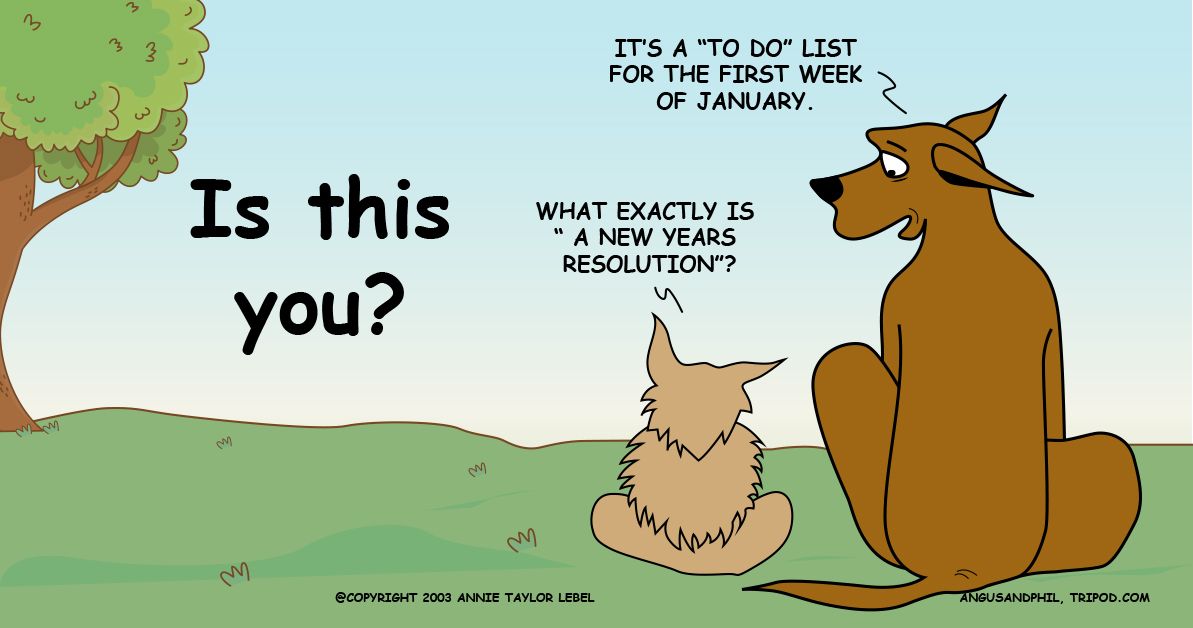
But you are not one of them, are you?
This year, set New Year Resolutions (and commit to them) to facilitate substantial growth for yourself, and your recruitment enterprise.
Here are eight resolutions you must set for the growth of your recruiting and staffing business:
1) Work towards building a strong business brand
If you haven’t already, you must start laying the foundations to build a strong business brand to remain competitive in this candidate-short market. As a recruitment agency, you are well aware that job seekers look at employer brand and reputation before making a final decision; in fact, 75% of job seekers do according to LinkedIn research. So, ask yourself this question, can you afford to ignore branding of your business?
 Impact that presence/absence of employer brand can have on a candidate’s decision to engage with that business | Source | LinkedIn
Impact that presence/absence of employer brand can have on a candidate’s decision to engage with that business | Source | LinkedIn
When businesses ponder over outsourcing their hiring and recruitment duties to a staffing agency, they research the agency’s credibility and popularity online. They study the recruiting company’s capability and expertise in the market. Here is where many agencies, even the competent ones, fail to grow their clientele and earn more business. Consider, for example, that a healthcare venture wants to outsource its recruiting tasks to another firm. The venture starts searching online for potential staffing partners and finds few firms to choose from; one among which has branded itself as a leader in healthcare recruitment.
What is the probability that the healthcare enterprise will contact the well-branded staffing firm first? Your answer to this question highlights the importance of having a strong business brand.
QX RPO Services boasts 16 years of experience in delivering offshore recruitment support from India to the staffing companies in the UK and US. This experience has given us a thorough understanding of the recruitment landscape in these countries, equipping us to provide quality branding and marketing services, along with other RPO services.
2) Integrate candidate experience into your recruitment process
We talked about branding to start with, but adding the element of candidate experience into the acquisition process, whether it is during the initial cold-call or the final onboarding, should be foremost in your to-do list for 2020.
This element takes aspects such as candidate attitude, behaviour and feeling into consideration during the hiring process. You can’t treat candidates like a mere resource in the market; those times are long gone. You have to treat them as you’d treat a customer. The key to achieving that lies in making the candidate feel valued throughout the hiring procedure.
Stick to traditional recruitment practice, and you will be replaced by algorithms, says Greg Savage.
Twitter widget required
Tech plays a significant role in optimising the recruiting process. It can make life easier for your talent acquisition team while also contribute to providing positive recruitment experience to candidates. The importance of tech will be discussed later in one of the following sections.
While tech can enhance the experience, you must not neglect the role of the sourcing experts and recruiters.
- They are the primary point-of-contact.
- They are the voice of your enterprise for candidates.
- They are responsible for providing job information and feedback throughout the cycle.
- They must:
- keep the engagement non-transactional and give it a human touch
- treat the candidates as customers
- answer their queries
- provide honest and timely feedback
- discuss their challenges
- understand their expectations
Basic steps such as texting them or emailing them before making a call, or asking them if they can have a quick chat before proposing a new position can go a long way in creating a great first impression.
Do this right, and passive candidates will contact you when they seek new opportunities, applicants who were rejected in the interview will refer more candidates and be receptive to the idea of working with you again for future employment openings. Poor candidate experience can hurt your hiring and retention efforts and potentially harm your brand.
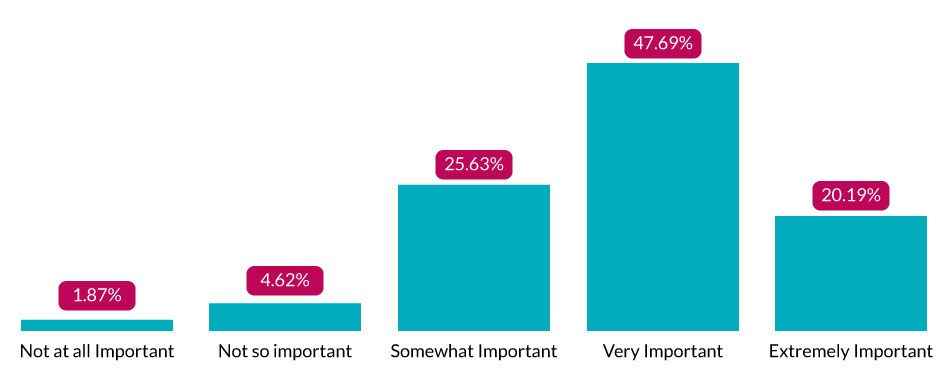 How important is the ability to find info about the hiring firm’s culture and benefits on the career website? | Source: Talentegy Candidate Experience Survey Report 2019
How important is the ability to find info about the hiring firm’s culture and benefits on the career website? | Source: Talentegy Candidate Experience Survey Report 2019
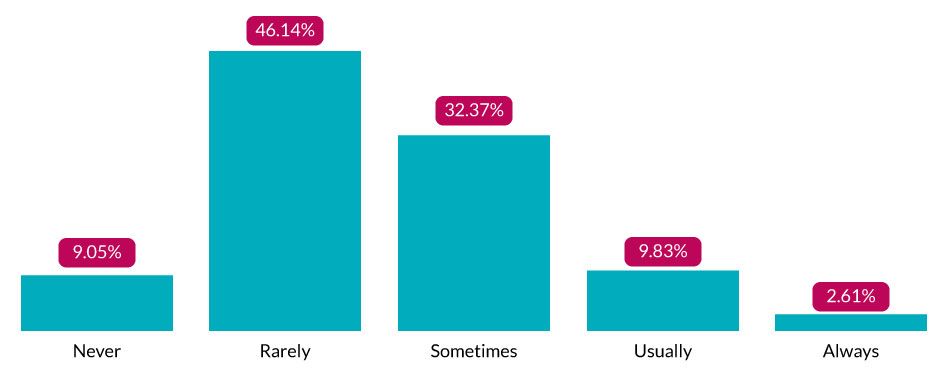 After application submission, how informed were applicants kept on their status during the recruiting process by most hiring companies? | Source: Talentegy Candidate Experience Survey Report 2019
After application submission, how informed were applicants kept on their status during the recruiting process by most hiring companies? | Source: Talentegy Candidate Experience Survey Report 2019
The above graphs give you a peek into candidate behaviour and expectations in the prevailing market. There is room from improvement, isn’t it?
It doesn’t just end after successful hiring; Onboarding process plays a crucial part in creating a great candidate experience for new hires as well. It is this touchpoint that introduces the new employee to your company brand and culture.
You need to ensure that:
- They can complete the required paperwork with ease to maintain compliance.
- They have met with the right people to get started.
- They are well informed about the company culture and looped in with their manager and team members.
The onboarding process has an immediate impact on candidate experience, contributing to long-term employee loyalty and retention.
Integrate this element into your recruitment practice as a matter of priority in 2020.
3) Be more strategic in your recruitment and sourcing practice
Train your team to take a strategic approach towards candidate sourcing and recruitment. Make sure you cover the points listed below:
- Don’t be limited by reactive recruitment practice; invest in proactive sourcing.
- Teach your sourcers not to stick to a limited number of sourcing channels. ATS, candidate database websites, Social Media, Forums, and industry-specific platforms are the few channels where you may find your target audience hanging out online.
- The team must know how to build meaningful relationships even if candidates are not seeking new employment opportunities. This practice will help you earn loads of referrals, and referrals are treasures in this candidate-short market.
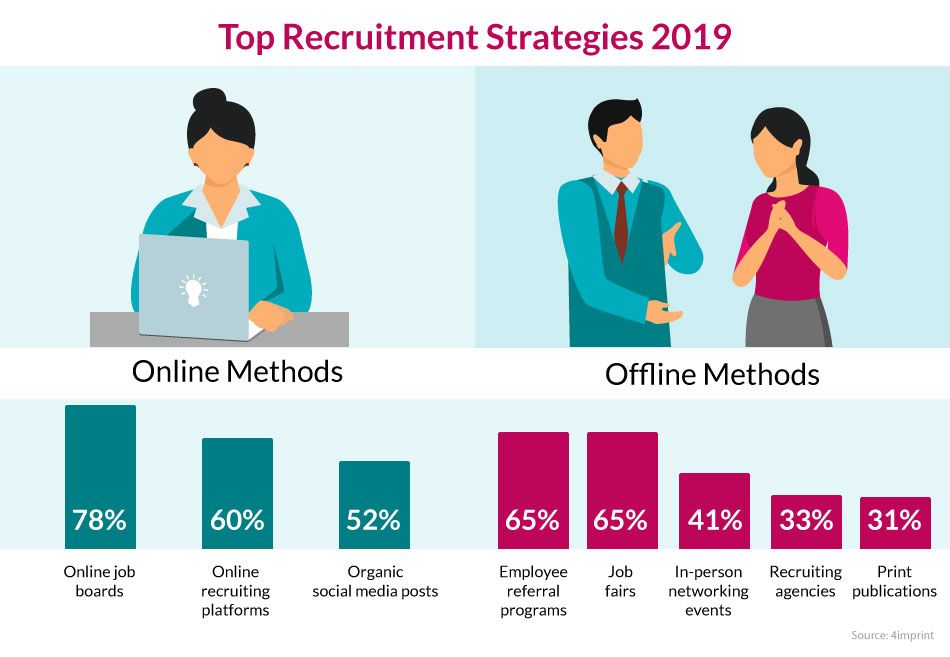 Source: 4imprint | Top Recruitment Strategies 2019
Source: 4imprint | Top Recruitment Strategies 2019
- For sourcing, the robotic approach of sticking to a script for all job requisitions won’t cut it anymore. Your team must carry a touch of sales and marketing bend in their engagement with candidates. It’s not about informing the candidates about job openings and gauging their availability anymore; your team needs to entice the potential hires with their charisma and sell the job position and the client brand to the applicant. You must invest in training your recruiters and sourcers to cultivate these capabilities.
- Adopt recruitment and sourcing practice that suits your business and clients. Recruitment marketing is gaining ground with increased inbound recruiting activities. Content marketing and social media are now at the fore, along with the job boards and online portals. Add to this, we are witnessing the onset of AIs, Augmented Reality and Automation in the talent acquisition industry. Inbound Recruiting is formed by taking an inbound marketing approach towards recruitment as highlighted in the image below. (This topic demands a separate piece in itself.)
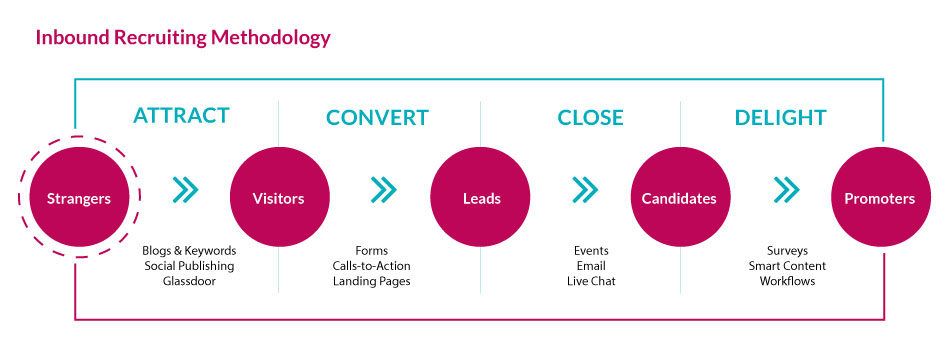 Inbound Recruiting Methodology | Source: Hubspot
Inbound Recruiting Methodology | Source: HubspotHowever, traditional recruitment efforts, such as referrals and job fairs, continue to be effective even today for some companies. It is not mandatory to move to digital channels simply because of their trending presence. If the traditional channel is working for you, then why desert it? The key is to find the right balance between traditional and digital channels to achieve success.
- As we stated earlier, the stature of the candidate has now changed from merely being a resource to a consumer, and you wouldn’t want to leave this critical responsibility of attracting consumers in untrained hands, would you?
Millennials believe providing adequate training is the responsibility of the employing company. Baby boomers have come to realise the importance of learning new skills, and are willing to go the extra mile, even if it’s at their own expense. Either way, training has become an essential part of company culture today. We understand that providing such training and taking a human-centric approach to recruitment may slow down the process (initially at least) and also lead to an increase in in-house cost. If incorporating this practice seems overwhelming and unmanageable, you can always manage the cost by partnering with the right RPO provider.QX provides L&D (Learning & Development) sessions to their talent acquisition teams regularly. These sessions focus on:
- Personal development
- Communication skills training
- Simulated sourcing drills,
- Compliance assessment training
- And the development of other soft skills
Working with QX RPO Services will give you access to trained sourcing experts and recruiters who understand the value of candidate experience and carry charisma to attract the audience from the talent marketplace.
4) Value what you have! Make better use of your talent pool
Talent Pool building is a practice that has been carried out by businesses since the old days. The irony is those same businesses still prefer to take up traditional recruitment approach of hiring external candidates. Most recruiting companies have a talent pool occupied largely by passive and overqualified candidates, which are rarely nurtured and wither away without being used over time.
However, thanks to the prevailing skill shortage in the market, agencies have gradually started understanding how to leverage the internal talent pool.
To build and maintain a quality talent pool, you must:
- feed your internal talent pool continually with new:
- active job seekers
- passive candidates
- resources engaged through internal/external referrals
- contingent workers
- continuously nurture the pool to achieve long-term talent retention
- ensure your pool is organised. For instance, the candidates should be easily searchable based on their skills or designation in your ATS
This basic exercise will help you:
- Cut recruitment cost
- Reduce time-to-hire
- Identify candidate for future needs
- Attain success in candidate short market
Most hiring agencies have a pool built of overqualified and passive candidates already. Do not let them go to waste! If you are unable to nurture and manage it, then take the helping hand from an RPO firm with the right skills. Allow QX to take the helm of your pool and build and manage it in a way most beneficial to your business.
5) Be ready for course correction with People-analytics and data-driven recruitment
We had planned to cover this point under strategic sourcing initially, but later figured it is better to give this point a separate dedicated section.
Data-driven recruitment and HR analytics have experienced substantial upsurge since the onset of recruitment marketing. A Deloitte survey reported that 71% of businesses now prioritise people analytics; however, only 9% have a decent understanding of using it correctly to drive performance.
You need to identify the key hiring metrics for your organisation first. Make sure you do your research well and understand the “WHYs and HOWs” of these metrics. Then bring about changes in your approach to optimise their values and meet your target goals. Time-to-hire, cost-to-hire and quality-of-hire are examples of parameters you can use to drive your recruiting process. Rinse and repeat, and play around with more metrics that may influence and enhance your strategy.
Once this process matures, which it will eventually, predictive analytics can be set up along with strategic analytics, empowering you to gain meaningful insights and predict future trends.
QX boasts hands-on experience with the latest ATS and Talent Management brands that provide smart analytics and reports, enabling you to continually improve your process and drive better results for your business.
6) Prep yourself for Gig economy
The flexible employment practice is on the rise, and more and more businesses are now opening doors for gig economy workers by introducing new contingent positions into their system. Start your 2020 by preparing yourself for the dawn of Gig Economy, and trust us, and it’s only going to get bigger in the future.
You may have heard or read about a few assumptions concerning Gig Economy and its future, but most of them are misplaced and baseless. Gig Economy is here to stay and grow.
While planning a recruitment framework for your business, you must make room for the gig economy in your strategy and ensure you are armed with the capability to cater to contingent positions as well. Using the tech that automates the processes such as onboarding, shift scheduling and attendance tracking will help you cope with the gig economy landscape. Also, moving from traditional designation-based hiring to skill-based hiring will help you perform better by leaps and bounds, not just in gig economy landscape, but also in a candidate short market.
7) Make more use of Automation to save time and money
Automating repetitive tasks, if done right, can save time, money and efforts. Don’t believe us? Here are some numbers that validate the point we set forth:
- Hackett Group reports that HR businesses can cut their hiring costs by 17% and reduce staff hours by 26% while improving operational efficiency and candidate experience.
- A survey carried out by CareerBuilder also reports that 72% of employers predict that automation will completely replace several (manual) elements of talent acquisition by 2027.
- The above survey also states that HR Managers who resist automation end up wasting 14 hours a week carrying out manual tasks that could have been automated.
Apart from the benefits (with numbers) highlighted above in this section, we also talked briefly, in the previous sections, about benefits of automation in coping with the gig economy as well as its role in delivering positive candidate experience
Several phases of the recruitment process can be automated, such as:
- Job Advertising / Job Posting
- Candidate Resume Pre-screening through means of skills, experience, titles etc.
- Interview Scheduling
- Candidate Archiving / Talent Pipeline Building
- Candidate Rediscovery
- Follow-up Reminders
- Candidate Nurturing
- Background Verification
Fret not, recruiting automation will not replace your recruiting team; instead, it will make their life easier. It will free them from strenuous laborious tasks and allow them to focus more on core tasks. It will help you streamline your agency’s acquisition procedure, thereby making it efficient with faster turnaround time.
If you don’t adapt with recruitment automation, you will eventually lose your candidates as well as clients to more tech-savvy competitors.
QX has Business Intelligence (BI) and Business Analytics (BA) teams that work internally as well as with clients. After working with clients for a specific period, the BI and BA teams monitor and analyse the current process, identify the points in the process that can be automated, and provide relevant business optimisation and transformation insights. Upon client approval, these parts are automated to speed up the process, freeing up the resources for more important tasks.
8) Start planning for AI-powered recruitment strategy
Speaking of Automation, we cannot ignore the (potential) role of Artificial Intelligence (AI) in the recruitment industry. AI, though currently in an infantile stage, is essential to leverage automation and improve recruitment experience.
Technically, AI cannot bring bias of human nature into the screening process. However, AIs still function based on their machine learning algorithms, and their decisions are at the mercy of the programming choices of people building them. And that’s how the bias comes into the picture! Nonetheless, there is potential.
Chatbots are already being utilised by numerous businesses that engage with candidates throughout the hiring journey. Some AIs can perform the candidate matching, resume screening and onboarding process. Artificial Intelligence is bound to play a massive part in remodelling the recruitment industry in the near future.
Closing Thoughts
Fulfil these 8 New Year resolutions, and you will achieve long-term recruitment success. If you need help fulfilling them, partner up with an RPO to ease your burden.
QX Global Group RPO Services provides complete strategic recruitment and sourcing support to staffing agencies based in the UK, US, Canada and European geographies. QX is armed with teams capable of delivering data-driven talent sourcing service, 360° strategic recruiting, weekly analytics and reporting, and automated recruitment solutions.
Originally published Jan 09, 2020 12:01:32, updated Mar 21 2023
Topics: Recruitment








